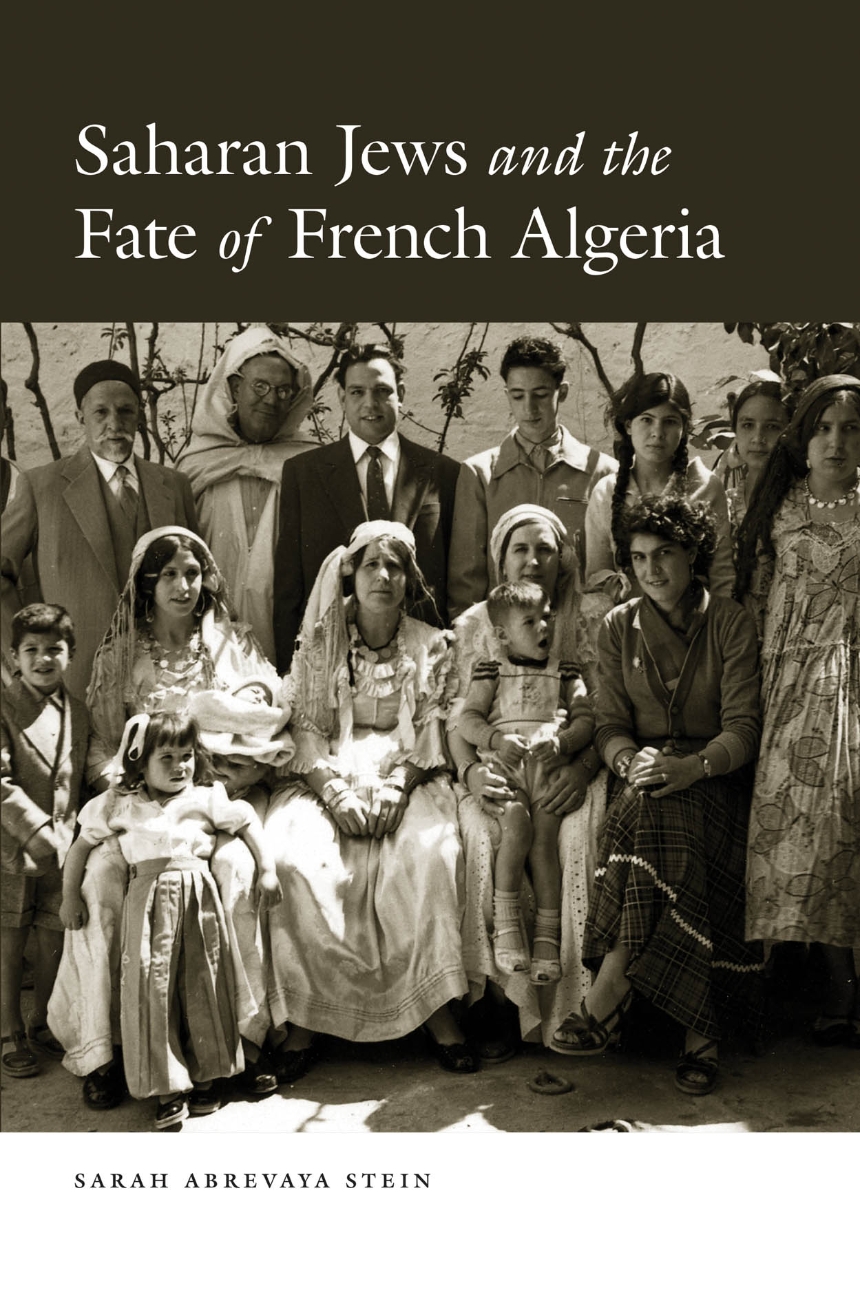Saharan Jews and the Fate of French Algeria
The history of Algerian Jews has thus far been viewed from the perspective of communities on the northern coast, who became, to some extent, beneficiaries of colonialism. But to the south, in the Sahara, Jews faced a harsher colonial treatment. In Saharan Jews and the Fate of French Algeria, Sarah Abrevaya Stein asks why the Jews of Algeria’s south were marginalized by French authorities, how they negotiated the sometimes brutal results, and what the reverberations have been in the postcolonial era.
Drawing on materials from thirty archives across six countries, Stein tells the story of colonial imposition on a desert community that had lived and traveled in the Sahara for centuries. She paints an intriguing historical picture—of an ancient community, trans-Saharan commerce, desert labor camps during World War II, anthropologist spies, battles over oil, and the struggle for Algerian sovereignty. Writing colonialism and decolonization into Jewish history and Jews into the French Saharan one, Saharan Jews and the Fate of French Algeria is a fascinating exploration not of Jewish exceptionalism but of colonial power and its religious and cultural differentiations, which have indelibly shaped the modern world.
Drawing on materials from thirty archives across six countries, Stein tells the story of colonial imposition on a desert community that had lived and traveled in the Sahara for centuries. She paints an intriguing historical picture—of an ancient community, trans-Saharan commerce, desert labor camps during World War II, anthropologist spies, battles over oil, and the struggle for Algerian sovereignty. Writing colonialism and decolonization into Jewish history and Jews into the French Saharan one, Saharan Jews and the Fate of French Algeria is a fascinating exploration not of Jewish exceptionalism but of colonial power and its religious and cultural differentiations, which have indelibly shaped the modern world.
Reviews
Table of Contents
Note on Translation and Transliterations
Prologue: The Lost Archive
Introduction: Inventing Indigeneity
Chapter 1. Anthropology and the Ghost of the Colonial Past
Chapter 2. Jews Northern and Southern: The French Annexation of the Mzab and the Boundaries of Colonial Law
Chapter 3. Governing Typologies: From the Conquest of the Mzab to the Touggourt/Dreyfus Affair
Chapter 4. Contested Access: Conscription, Public Health, and Education from the Fin de Siècle through the Interwar Period
Chapter 5. Saharan Battlegrounds: From the Vichy Regime to a Postwar World
Chapter 6. Oil, the Algerian War of Independence, and Competing Stories of Departure
Conclusion: Colonial Shadows
Epilogue: Dark Matter
Acknowledgments
Abbreviations of Archival and Library Collections
Notes
Bibliography
Index